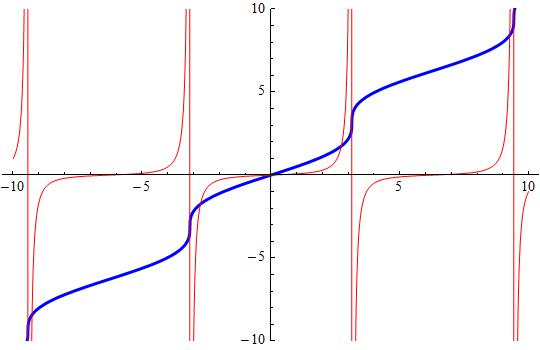How do you find #(d^2y)/(dx^2)# given #y+siny=x#?
2 Answers
Aug 2, 2016
Explanation:
Here, x=y+sin y.
So, 1=y'+y'cos y=(1+cos y)y'.
And so, y'=1/(1+cos y)
Now,
Aug 2, 2016
Explanation:
Given
We know
so we have now the functional relationship
deriving regarding
substituting for
Attached the plot of


